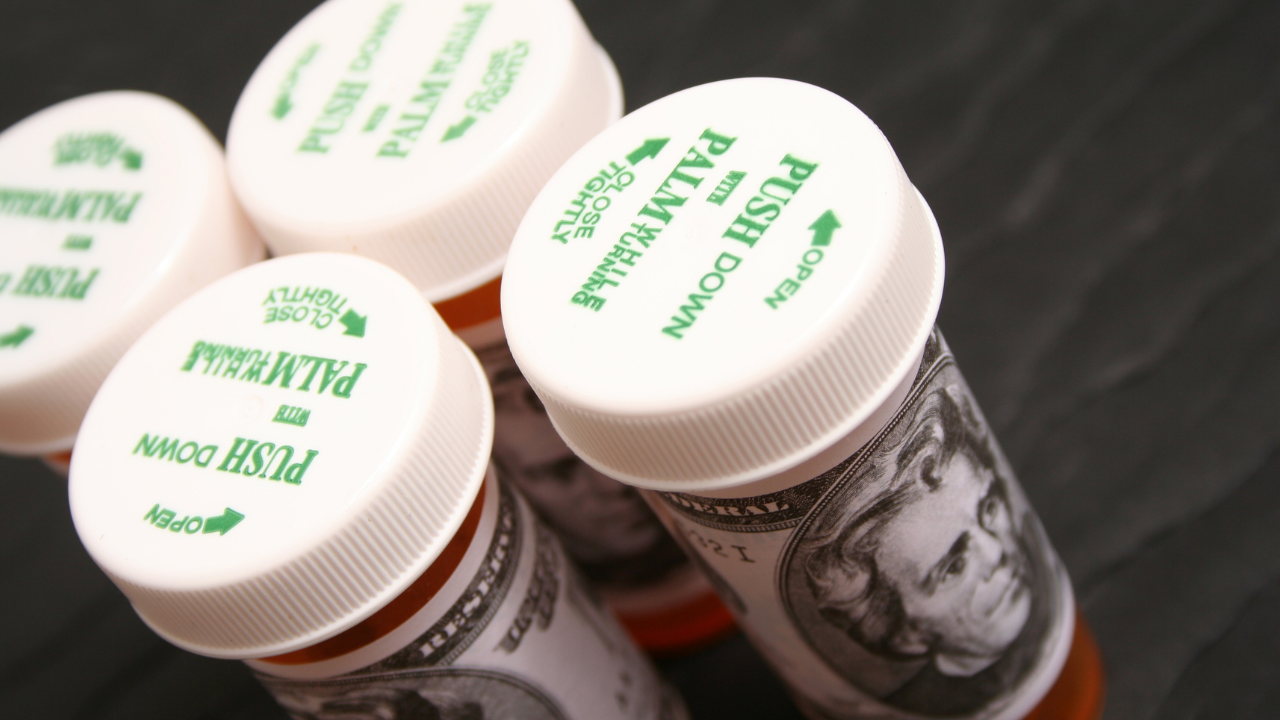How Medication Therapy Management Empowers Health Plan Members
 Healthcare in today’s world is becoming increasingly more confusing. Health plan members face an unintuitive healthcare system that often leaves them feeling lost, the number of new physicians does not compensate for the number of those retiring, and the shift toward value-based care is taking longer than expected. Fortunately, there is a positive trend toward a human-centric approach that personalizes care for each patient’s unique conditions and circumstances. It is this push that stands to empower health plan members and bring them into the spotlight when it comes to making decisions and creating positive behaviors to improve their health.
Healthcare in today’s world is becoming increasingly more confusing. Health plan members face an unintuitive healthcare system that often leaves them feeling lost, the number of new physicians does not compensate for the number of those retiring, and the shift toward value-based care is taking longer than expected. Fortunately, there is a positive trend toward a human-centric approach that personalizes care for each patient’s unique conditions and circumstances. It is this push that stands to empower health plan members and bring them into the spotlight when it comes to making decisions and creating positive behaviors to improve their health.
Medication therapy management (MTM) is one modality delivering personalized care, empowering patients to become active participants in their own healthcare. An extra benefit of MTM is that it’s best-conducted by a workforce historically underutilized—pharmacists. It’s the perfect opportunity to put some of our nation’s top healthcare experts and their valuable skills to good use.
The importance of medication therapy management
MTM is a critical service, especially when it pertains to vulnerable populations such as Medicare or Medicaid beneficiaries. It provides an opportunity for the member to (virtually) sit down with a pharmacist and review their medications for a truly comprehensive medication review. It sounds simple, but these reviews often detect potentially harmful or even life-threatening side effects or interactions between medications.
Pharmacists are the single best clinicians when it comes to delivering MTM consultations. They’re doctorate level professionals who go through years of study on medications, their mechanisms of action, how they work together, and how they can influence the body. Needless to say, they’re by far the top medication experts in healthcare.
The power of patient education
 One of the ultimate goals of a comprehensive medication review is to provide informative and actionable education so members can take a more active role in their health. For example, during a CMR, a pharmacist might uncover that a member is taking duplicative medications. In a situation like this, the pharmacist could educate the member about why they’re taking more than they should, the risks associated with the elevated dosage, and what to look out for in the future so they don’t make the same mistake again. Simultaneously, this pharmacist would contact the prescribing physician to have the error corrected.
One of the ultimate goals of a comprehensive medication review is to provide informative and actionable education so members can take a more active role in their health. For example, during a CMR, a pharmacist might uncover that a member is taking duplicative medications. In a situation like this, the pharmacist could educate the member about why they’re taking more than they should, the risks associated with the elevated dosage, and what to look out for in the future so they don’t make the same mistake again. Simultaneously, this pharmacist would contact the prescribing physician to have the error corrected.
We’re all human and mistakes are inevitable—even by doctors and well-run pharmacies. By equipping patients with the knowledge they need, we can make significant headway in reducing medication-related health issues caused by situations like the example above.
Patient education also allows for a greater sense of trust between patients and their care teams. When patients have a true understanding of their health, medications, and care plans, it allows them to be more trusting to those caring for them. Conversely, a patient who is kept in the dark about their health and offered little to no explanation about their conditions or medications is more likely to be distrusting of clinicians and even the healthcare system at large.
Improved medication adherence
Another benefit of MTM, and a downstream effect of patient education, is improved medication adherence. Medication adherence is one of the most important factors in health maintenance and improvement, especially when chronically ill health plan members are concerned.
One of the key factors influencing medication adherence is the level of understanding that patients have about their medications. Ultimately, it’s a simple and intuitive concept—if patients don’t understand why their medications are important, then why would they take them?
Once we understand that question, it’s clear that strong medication adherence rates are chiefly dependent on proper education. Through a comprehensive medication review, a pharmacist can educate the health plan member about the importance of their medications, why following the dosing instructions is critical, and the potentially harmful outcomes if they stray from the intended use of their prescription medications.
MTM and lower costs for medication
 It’s well known that our nation is facing a healthcare affordability crisis. What is less obvious are some of the indirect cost drivers contributing to higher bills at the doctor’s office and pharmacy. Due to rising rates of chronic disease, health plans are forced to increase costs to cover the claims paid to care for their sickest members. Because health insurance is based on a risk pool, costs increase for all members, even those with fewer and less expensive claims. Taken on a macro scale, this situation plays a significant role in healthcare costs that seem to rise year after year.
It’s well known that our nation is facing a healthcare affordability crisis. What is less obvious are some of the indirect cost drivers contributing to higher bills at the doctor’s office and pharmacy. Due to rising rates of chronic disease, health plans are forced to increase costs to cover the claims paid to care for their sickest members. Because health insurance is based on a risk pool, costs increase for all members, even those with fewer and less expensive claims. Taken on a macro scale, this situation plays a significant role in healthcare costs that seem to rise year after year.
Fortunately, there is a solution, and it might be simpler than you think.
If health plans can better manage the health of their membership, they can reduce the costs they are paying to care for those members, and subsequently lower the cost of care for all. It’s in this way that MTM can contribute to lower healthcare costs in the future. MTM is one of the most effective ways in which health plans can more effectively manage their members’ health. Another benefit of MTM is that through comprehensive medication reviews, medication issues can be identified by a pharmacist and corrected by the prescriber before they lead to seriously harmful or even fatal issues in the future. At its core, MTM is a focus on preventive and proactive care rather than reactive treatment.
3 considerations for a medication therapy management program
When devising an MTM program to get your health plan’s members the care they need and deserve, are there any important aspects to keep in mind? The answer is yes, and luckily, they’re not difficult if you work with the right partner.
Personalized outreach
Personalizing the outreach to each member is an important first step to creating productive consultations from the start. A cookie-cutter approach does not inspire confidence or willingness for members to participate in a new clinical program.
Aspen RxHealth personalizes MTM outreach by matching health plan members to pharmacists in our nationwide community, thousands strong. We match based on factors such as clinical specialties, languages spoken, disease state, geographic location, and more. In this way, our health plan clients can be confident that their members are speaking to the best-qualified pharmacist for their health conditions every time.
Take an empathetic approach
 One of pharmacists’ greatest strengths when delivering medication consultations is their ability to meet patients where they are. Some patients can be nervous or distrustful of the healthcare system, and this is only exasperated when doctors speak to them in a condescending manner.
One of pharmacists’ greatest strengths when delivering medication consultations is their ability to meet patients where they are. Some patients can be nervous or distrustful of the healthcare system, and this is only exasperated when doctors speak to them in a condescending manner.
Pharmacists take a different route. They help patients understand the “why” of their medications and the “how” of the effects they have on the body, both positive and negative. This rapport-building strategy is exactly why Aspen RxHealth pharmacists receive training in motivational interviewing from industry-renowned experts. It’s one of many tools at their disposal to break down barriers and create more productive consultations that lead to long-term relationships.
Find the right MTM partner
MTM isn’t easy. It’s a complex, often time-consuming endeavor that requires technological infrastructure and a team of well-trained clinicians. If that sounds daunting, you’re not alone. The good news is that you don’t have to do it alone.
MTM partners such as Aspen RxHealth are ready, willing, and able to act as an extension of your team when it comes to building and/or enhancing MTM programs. In fact, we’re already doing just that for health plans of all sizes across the country, including some of the nation’s top plans.
Support the team you already have
If you’re a pharmacy decision maker at a health plan saying, “this is great, but I’ve already got a team of pharmacists, what can I do?” - we have a solution.
Alliance by Aspen RxHealth is an award-winning MTM platform for use by your team of pharmacists. Not only is it user-friendly and efficient to use, but it handles all back-end administrative work post-consultation.
And if your pharmacy team is small, we’ve still got you covered. Alliance by Aspen RxHealth gives you the peace of mind that there is no consultation volume you can’t meet. Through access to Aspen RxHealth’s community of thousands of pharmacists to function as your backstop, your members will always get the MTM care they need no matter team capacity.
Learn more about clinical pharmacy solutions and MTM platforms to support your team.